In 1942, the New York Post accused David Walsh, U.S. senator from Massachusetts, of patronizing a gay brothel near the Brooklyn Navy Yard. Not only that, the Post charged, the whorehouse doubled as a Nazi spy nest. Within blocks of the Yard, Hitler’s agents were plying servicemen with sex and drugs to find out about troop movements.
Part of the sensational story was true. Part of it was false.
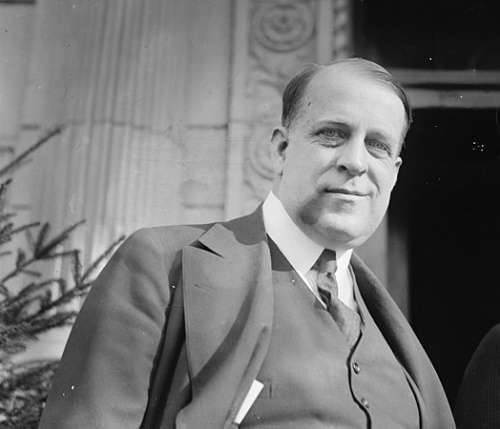
David Walsh
David Walsh called the Post’s allegations “a diabolical lie.” But the newspaper kept the story alive for weeks, threw the Senate into an uproar and destroyed Walsh’s career.
To this day, people say the Post launched a smear campaign against Walsh because he argued against U.S. involvement in World War II. His sexuality was simply a convenient weapon that made it impossible for him to defend himself.
David Walsh
Walsh was born in Leominster, Mass., on Nov. 11, 1872, the ninth of 10 children. His father, James Walsh, worked in a Leominster comb factory, but died when David was 12. His mother, Bridget Donnelly Walsh, did what many widows did to make ends meet. She ran a boardinghouse, and she somehow managed to put five of her 10 children through college.
David graduated from Clinton High School, then Holy Cross in Worcester. In 1897, he graduated from Boston University Law School and opened a law practice in Fitchburg. He often took cases seeking compensation for poor workers injured in mill accidents.
Walsh then moved to Boston, where he rose quickly in politics. Elected to the Massachusetts House for the first of two terms in 1899, he then won election as lieutenant governor, governor and then, in 1919, the U.S. Senate.
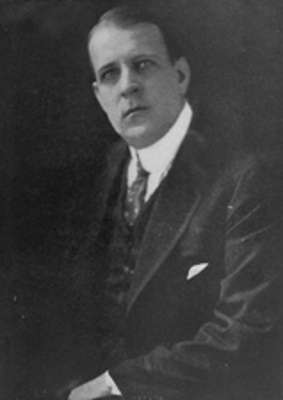
David Walsh as a young man
Champion of the Poor
Throughout his career, Walsh took issue with U.S. colonialism and advocated for Philippine independence. He opposed sending poor American boys to fight Europe’s rich men’s wars, earning him the label “isolationist.” He authored the first U.S. minimum wage law and sided with workers in their fight to organize. And he played a role in barring discrimination in federal contracts.
Walsh strongly opposed entering World War II until Japan bombed Pearl Harbor. But he supported veterans and tried to strengthen the U.S. Navy as chairman of the Senate Naval Affairs Committee.
Confirmed Bachelor
In 1929, Time magazine hinted at rumors of Walsh’s sexuality in an unflattering profile.
“A bachelor, he is tall and stout,” began the magazine. He had a double chin and a stomach that bulged over his belt, it continued. “He is troubled about it….His dress is dandified. He wears silk shirts in bright colors and stripes and, often, stiff collars to match.”
Walsh also lived with four unmarried sisters and a Filipino servant who worked for him for 30 years – and, according to the Boston History Project, “was his closest companion.”
In a 1974 interview, novelist Gore Vidal said, “There wasn’t anybody in Massachusetts who didn’t know what David Walsh was up to.” Vidal claimed Walsh had once hit on his father.
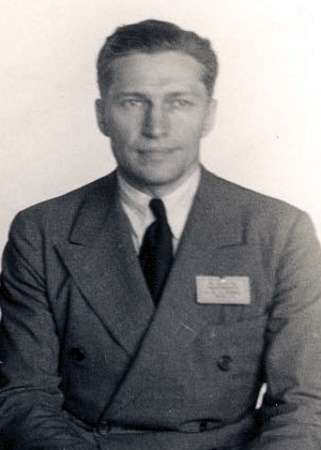
Gene Vidal, Gore Vidal’s father, claimed Walsh hit on him
The Scandal
David Walsh served five terms in the U.S. Senate, longer than anyone from Massachusetts until Edward M. Kennedy broke his record.
And then in the spring of 1942 the scandal broke, one of the most damaging to ever involve a member of the U.S. Senate.
Starting in April, the Post began running lurid headlines: “Service Men Lured to ‘Den’ Called Spy Nest” preceded “Senator Linked to Spy Nest Which Lured Service Men.”
According to the Post story, a Swiss national named Gustav Beekman ran a “house of degradation” on Pacific Street near the Brooklyn Navy Yard. Inside, German spies tried to pump visiting American servicemen for military secrets. In addition, a “Senator X,” widely known as a closeted homosexual, patronized the establishment nicknamed the “Swastika Swishery.”
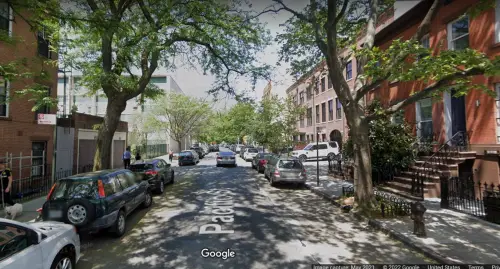
Pacific Street in Brooklyn today. Courtesy Google Maps.
Leave Him With a Loaded Revolver
On May 1, the Post reported “Senator X” had frequented the brothel, and printed a silhouette of Walsh’s head, washing out the features.
Over several weeks, it teased the public with “Senator X.” Then, finally, it ran the wood: SEN. WALSH NAMED AS SEN. X—LINKED TO NAZI SPY NEST.
Senate Majority Leader Alben Barkley discussed the affair with Franklin Roosevelt. The president replied that in the army a man in Walsh’s position would be left alone with a loaded revolver to do the only thing left to do.

Franklin Roosevelt
What Walsh did do was to call the story “a diabolical lie.” He asked for an investigation and continued on with his Senate business. Barkley ordered the Justice Department to investigate.
Exoneration of David Walsh
On May 20, 1942, Barkley announced the results of the investigation. Reported Time:
Gravely, before a packed, worried Senate, Majority Leader Alben W. Barkley opened his package of dynamite. “I ask the privilege,” he began, “of making a statement at this time about a matter which involves the highest privilege of the Senate and the highest personal privilege of a Member of the Senate.”
Barkley described the charges. Then he said the Justice Department had completely exonerated Davis Walsh. The whole “weird and fantastic” story was a case of mistaken identity, he said.
Some senators demanded Barkley release the 25-page FBI report. But he refused, calling it “disgusting and unprintable.”
“Whitewash for Walsh” opined the Post.
The scandal ended, and so did David Walsh’s career. Henry Cabot Lodge, Jr., defeated him in his bid for re-election in November 1946. He died six months after leaving office, on June 11, 1947, at 74 years old.
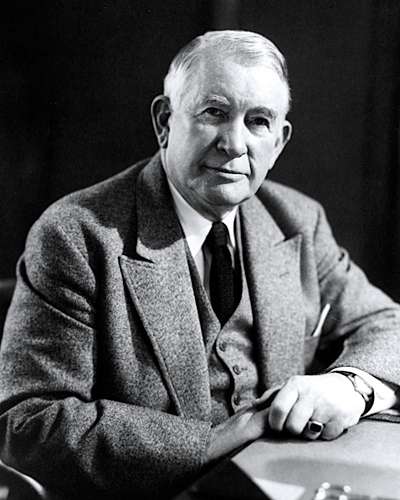
Alben Barkley
For decades, whenever the Walsh story was told, it ended with the conclusion that what really happened was “unknowable.” Or that “the FBI confirmed the allegations were true.“ Or simply didn’t say whether Walsh was guilty or innocent.
The Real Story
What no one knew for many years was that the Post publisher herself exonerated David Walsh.
Dorothy Schiff published the Post for nearly 40 years. She belonged to a wealthy German Jewish banking family and was an ally – perhaps a mistress as well – of Franklin Roosevelt. She ardently supported U.S. entry into World War II.
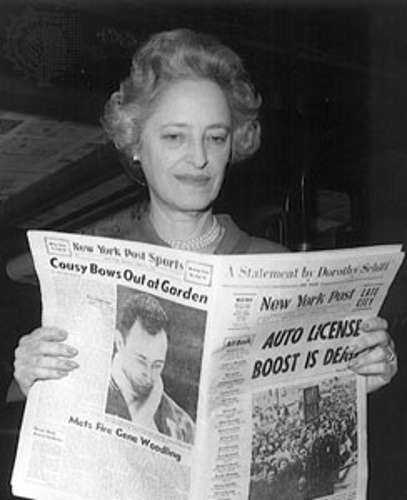
Dorothy Schiff
But after the FBI exonerated Walsh, she grew concerned that he might sue the newspaper. So she hired a team of six private investigators and attorneys to secretly find out the truth.
They spent five months preparing the 150-page report, which sat in the New York Public Library apparently untouched until historian Hugh Ryan read it. Ryan, in his 2020 book When Brooklyn Was Queer, explained what happened.
It started when the Office of Naval Intelligence surveilled Gustav Beekman’s brothel from the fourth floor of a nearby hospital. They recorded license plates of people who went in and out of the building. ONI observed William Elberfeld, who they believed a spy for Hitler, patronizing the place.
The ONI and the police then raided the establishment. They arrested Beekman and some of his clients, including composer Virgil Thomson – but not David Walsh.
‘Doc’
One of Beekman’s sex workers, a merchant mariner named Charles Zuber, did get caught up in the raid. The prosecutor badgered the frightened sailor for the names of any rich clients — thinking, apparently, that Beekman couldn’t make much money from male prostitution. Zuber gave up the name “Walsh,” saying he believed him a doctor nicknamed “Doc.”
Then, wrote Ryan, someone in the prosecutor’s office revealed the alleged Walsh connection to the presiding judge, Samuel Leibowitz.
Leibowitz told Beekman that he’d treat him leniently if he gave up his spy connections. Beekman, terrified, “seemed willing to say whatever was necessary to avoid going to prison,” investigators reported He did give up Elberfeld, the spy the ONI had targeted, but the ONI no longer seemed interested in him. Interrogators instead leaned on Beekman to give up Walsh. They once went over him for seven hours until he collapsed.
In the end, all they got was contradictory statements from the men arrested in the raid. Some said they saw Walsh there, some didn’t.

Brooklyn Navy Yard
David Walsh Not in Brooklyn
Schiff’s investigators analyzed Walsh’s travel records and concluded he couldn’t have been in Brooklyn on the dates alleged. They also realized a Connecticut doctor named Harry Stone strongly resembled Walsh and almost certainly was the man called “Doc.”
Beekman served his full 20-year sentence in Sing-Sing prison.
Not Since the Medici
Immediately after Alben Barkley announced Walsh’s exoneration, several isolationist senators demanded another investigation into the smear campaign.
Sen. Bennett Clark claimed the Post’s lawyer had suggested to Roosevelt that he discredit his opposition. Sen. Gerald Nye claimed a secret society had tried to damage his reputation and that of fellow isolationists.
But Barkley refused to look into it. “I don’t feel that a general investigation of the newspaper fraternity, based on one case, would be proper,” he said.
Years later, Thomas L. Glynn, Jr., wrote in the Oct. 19, 1951 issue of The Boston College Heights, that the Friends of Democracy had orchestrated the smear against isolationists. They were a “high sounding name for a group of character killers,” who had made false accusations against Charles Lindbergh, Sen. Burton K. Wheeler and Sen. David I. Walsh.
“Not since the era of Medici intrigue of the fifteenth century has anything equaled the character defamation and assassination of our times,” wrote Glynn.
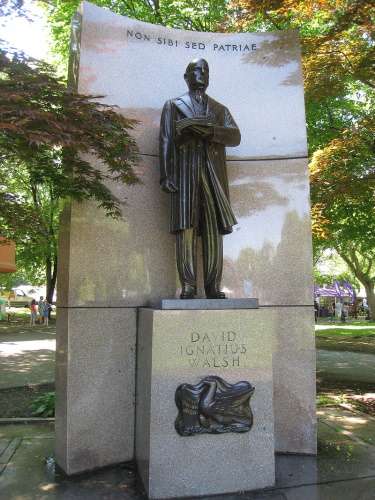
Statue of David Walsh in Boston
Images: David Walsh: By National Photo Company Collection – Library of CongressCatalog: https://lccn.loc.gov/2016829194Image download: https://cdn.loc.gov/service/pnp/npcc/02900/02962v.jpgOriginal url: https://www.loc.gov/pictures/item/2016829194/, Public Domain, https://commons.wikimedia.org/w/index.php?curid=66880431. Brooklyn Navy Yard By Ian Bartlett – Own work, CC BY-SA 4.0, https://commons.wikimedia.org/w/index.php?curid=73747552. Dorothy Schiff By http://www.businesshistory.com/ind._publishing2.php, Fair use, https://en.wikipedia.org/w/index.php?curid=33210763. Statue of David Walsh: By Sculpted by Joseph Coletti; I took this photograph. – Sculpted by Joseph Coletti; I took this photograph., Public Domain, https://commons.wikimedia.org/w/index.php?curid=8567774.

